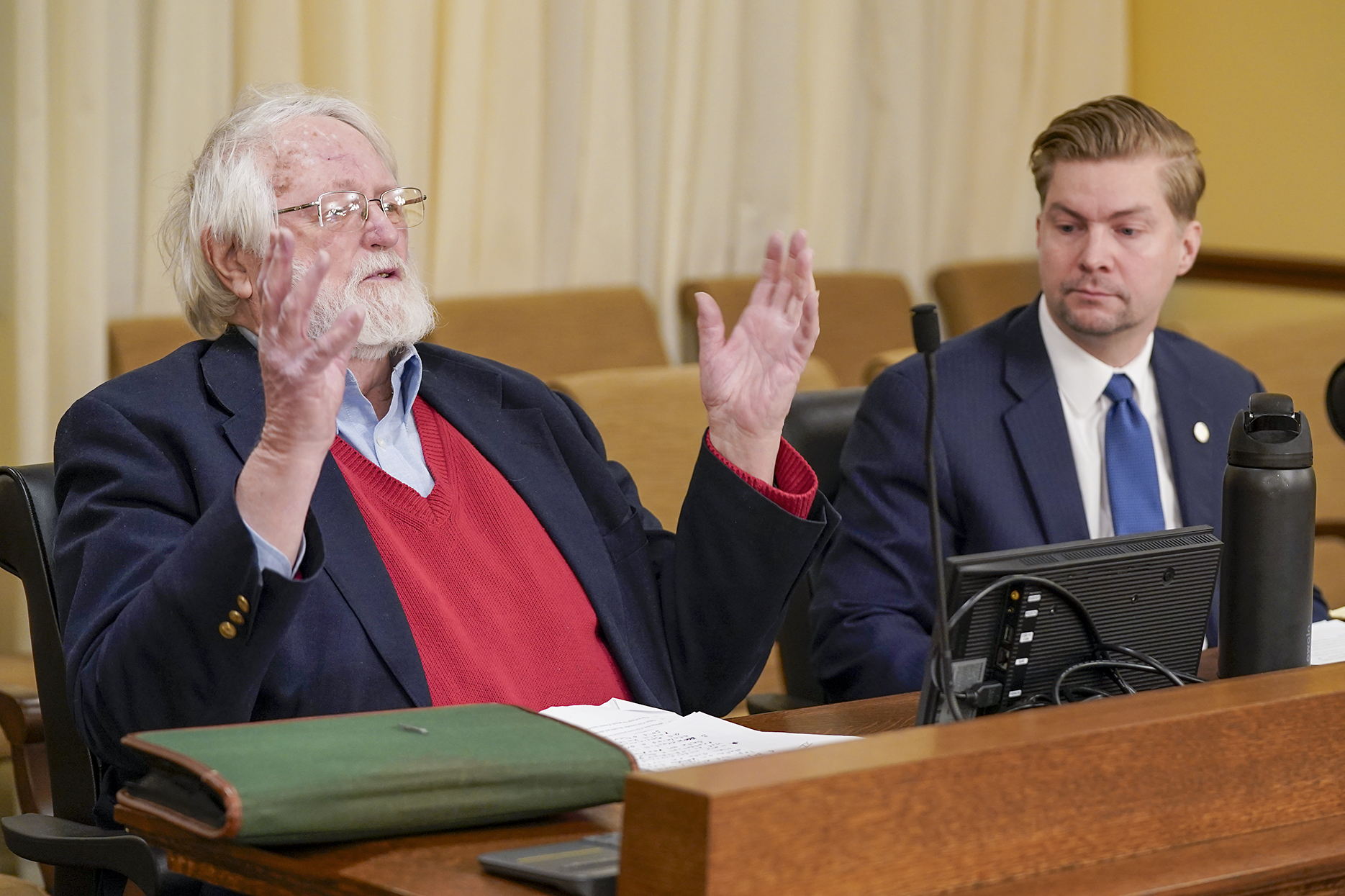Bill aims to increase public access to state attorney general data

A proposed two-word change to state law would have the effect of narrowing the scope of data collected by the attorney general’s office that is classified as private and thus making more collected data public.
That change is needed, says House Majority Leader Harry Niska (R-Ramsey), to correct what he called the state Supreme Court’s misinterpretation of the Data Practices Act in a 2022 decision as it applies to the office.
That decision, he said, gave the office too much leeway to hide from the public how it is investigating complaints and how corporations and organizations are influencing those decisions.
“This is the way to put the Data Practices Act back into the balance and the rational scheme that was intended,” Niska said of HF20 that he sponsors. “Minnesotans can have sunlight, sunshine, into the very important work that is happening in the attorney general’s office. … We can know who is influencing or who isn’t influencing the actions of that office.”
The House Judiciary Finance and Civil Law Committee approved the bill on a 7-6 party-line vote Thursday and sent it to the House Floor.
The bill would make data collected by the office, such as information collected during investigations of consumer complaints and “whistleblower” actions, classified as private only if they were data “on individuals.”
Several openness-in-government advocates testified in support of the bill, including James Dickey, senior trial counsel at the Upper Midwest Law Center, who argued on behalf of the respondent in the 2022 Supreme Court case.
“[The court’s decision] is confusing and it defies plain language. It’s also inconsistent with this time-honored understanding of how the Data Practices Act classification system works,” he said.
Attorney General Keith Ellison said the proposed change would hamper his office’s investigations into civil and consumer complaints, for example, by removing protections certain whistleblowers would have against public disclosure and hence expose them to possible retaliation.
He wrote in a letter: “The proposed change substantially alters what investigative data would be subject to protection from public disclosure: [the bill] would remove the protection for all investigations into non-individuals, which is a drastic change.”
He further cited an example of the need to keep from publicly identifying a family farm organized as an LLC that might rightly fear retaliation for reporting on the misconduct of the large agricultural conglomerates to which it must sell its products.
Related Articles
Search Session Daily
Advanced Search OptionsPriority Dailies
Speaker Emerita Melissa Hortman, husband killed in attack
By HPIS Staff House Speaker Emerita Melissa Hortman (DFL-Brooklyn Park) and her husband, Mark, were fatally shot in their home early Saturday morning.
Gov. Tim Walz announced the news dur...
House Speaker Emerita Melissa Hortman (DFL-Brooklyn Park) and her husband, Mark, were fatally shot in their home early Saturday morning.
Gov. Tim Walz announced the news dur...
Lawmakers deliver budget bills to governor's desk in one-day special session
By Mike Cook About that talk of needing all 21 hours left in a legislative day to complete a special session?
House members were more than up to the challenge Monday. Beginning at 10 a.m...
About that talk of needing all 21 hours left in a legislative day to complete a special session?
House members were more than up to the challenge Monday. Beginning at 10 a.m...